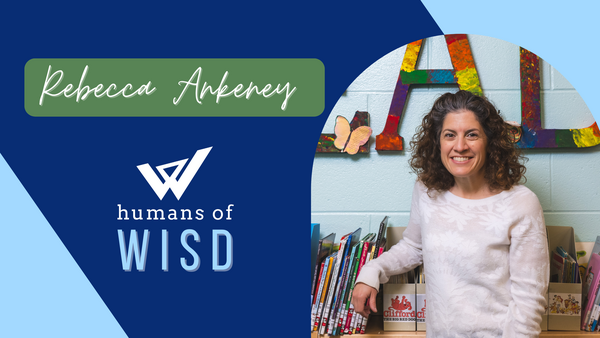Humans of WISD: Meet Rebecca
Meet Rebecca Ankeney, Speech-Language Pathologist

Meet Rebecca Ankeney, Speech-Language Pathologist
"I don't really know where my drive to work professionally with people with disabilities came from. When I was a small child, anytime I saw somebody with a disability I felt, like, sick to my stomach. I just felt pity. I felt really uncomfortable like I just wanted to retreat and get away from it. I don't know where that turning point was…I think I came to realize that, for the most part, people don't need or benefit from being pitied at all and that it doesn't serve anybody to pity them. And, for many people, you know, there's no reason to pity them. I think we're always superimposing our own thoughts and feelings on everybody, but especially on those who may not have their own voice.
I had a lightbulb moment a few years ago at a conference when I heard a parent ask, "What if we stopped looking at people with disabilities as having special needs? What if we thought of them as having the same needs as everybody else?" So, I think about what's going to give students a sense of purpose and a sense of community and inclusion. I guess I think of that like a kind of guiding light. Yes, everybody should learn and be taught things, but really at the end of the day, what do they need? They need to feel like their life has meaning.
I think it's important to really kind of just focus on the humanity of each individual and what their personal life experience is. Then do whatever you can do to meet them in that space to help them live their life to the fullest potential. You can constantly focus on what you're not accomplishing and what's not happening for individuals with disabilities, and how much more needs to be done. But, you can also just be focusing on the little wins and the successes and what is happening – and the fact that you're just going to wake up tomorrow and try again.
What makes it worth it are those moments when you really do feel like you've provided a student with a voice. A student maybe didn't have a voice before and now they can independently express themselves – even if it's in a limited way, or an infrequent way. You think, "I helped provide a voice to a young person.""
Inspired by (and with special permission from!) the original "Humans of New York," the "Humans of WISD" storytelling project is uncovering what drives our WISD team and why they're passionate about their work in the district and in our community.
